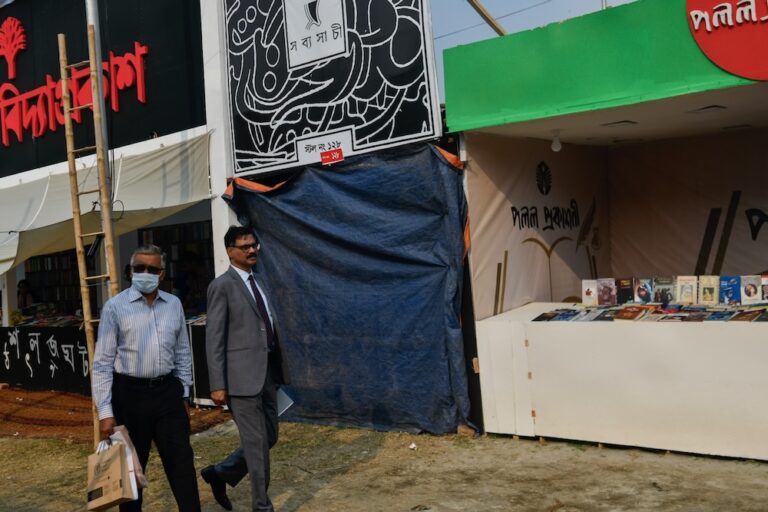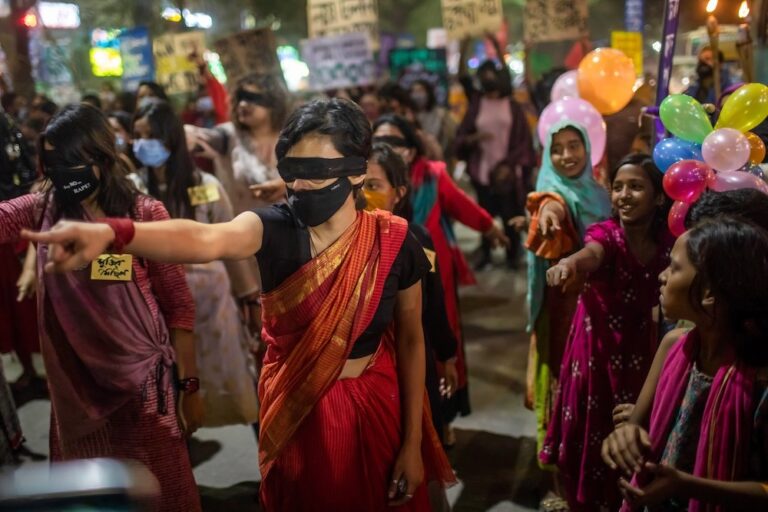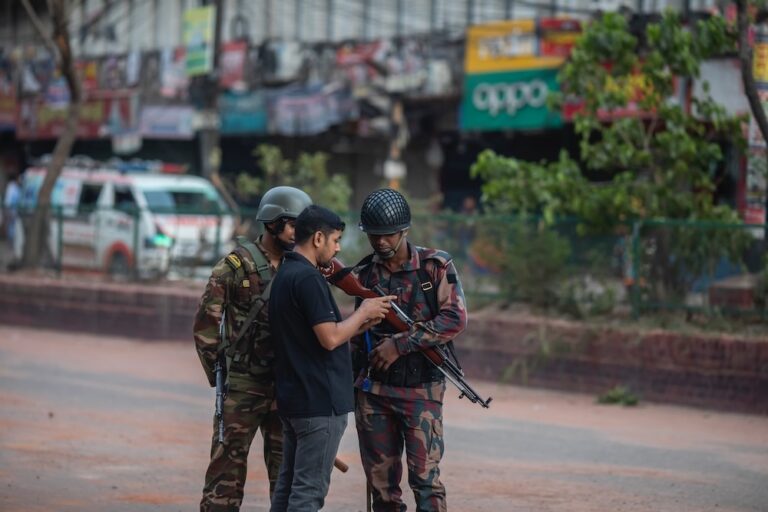(RSF/IFEX) – On 24 May 2002, RSF protested the one-month jail sentence imposed on Matiur Rahman Chowdhury, editor-in-chief of the daily newspaper “Dainik Manabzamin”, for contempt of court. “Sentencing a journalist to jail on the outdated and repressive charge of contempt of court sets a dangerous precedent for press freedom in Bangladesh,” said RSF Secretary-General […]
(RSF/IFEX) – On 24 May 2002, RSF protested the one-month jail sentence imposed on Matiur Rahman Chowdhury, editor-in-chief of the daily newspaper “Dainik Manabzamin”, for contempt of court.
“Sentencing a journalist to jail on the outdated and repressive charge of contempt of court sets a dangerous precedent for press freedom in Bangladesh,” said RSF Secretary-General Robert Ménard in a letter to Bangladeshi Justice, Law and Parliamentary Affairs Minister Moudud Ahmed.
“To avoid more sentences like this, we ask that the offence be abolished and that the law be amended, dropping prison terms for media offences,” Ménard added. He also noted that the United Nations Special Rapporteur for Freedom of Expression has described sending someone to prison for expressing an opinion as being “out of proportion to the offence.”
On 20 May, Chowdhury was found guilty of contempt by the High Court. In addition to his jail sentence, the editor-in-chief was fined 2,000 takas (approx. US$35; 40 euros). His wife Mahbuba Chowdhury, the newspaper’s publisher, was also fined 2,000 takas. Former president Hussain Mohammad Ershad was jailed for six months, also for contempt of court. The three defendants have appealed the verdicts, so the sentences have not yet been applied.
The court’s two judges said Chowdhury had committed the contempt by publishing a secret conversation between Ershad and Justice Mohammad Latifur Rahman, in which Ershad had tried to get a favourable verdict in a case involving himself. The court criticised the sensational media coverage of a scandal involving senior judge Latifur Rahman, who resigned after the conversation appeared in “Dainik Manabzamin” and three other newspapers.
It was the first time since the return of democracy in 1990 that a newspaper editor had received a prison sentence for a press offence. The editors of 15 of Bangladesh’s main daily newspapers issued a statement on 22 May supporting the independence of the press and the courts and declaring their solidarity with Chowdhury.


